Joseph Hunt's Blog, page 13
April 16, 2012
Poetry: Similes & Metaphors

There is a lot of figurative language used in poetry, but I'm just going to focus on similes and metaphors. Before we get into anything, here are some definitions, taken from the wisest bot of them all, Google, here's what he had to say.
Simile | noun
v A figure of speech involving the comparison of one thing with another thing of a different kind, (e.g., as brave as a lion).
v The use of such a method of comparison.
Metaphor | noun
v A figure of speech in which a word or phrase is applied to an object or action to which it is not literally applicable.
v A thing regarded as representative or symbolic of something else, esp. something abstract.
Similes and metaphors are what add depth to your writing, they're the techniques that show just how original you are. There are a lot of clichés, such as, tough as nails, eagle eyes, old as time, sweating bullets, etc. I think you get the drift, they're all unoriginal and have been used before.
It doesn't just apply to poetry, similes and metaphors are used in all kinds of writing, we even use them in speech when we might not be aware of it. ALTHOUGH you might be using them in your everyday speech, you can't just go ahead and use them in your writing (well, you could, but it wouldn't be good), the best kind of simile or metaphor is a unique one, one that gives detail about the character, or the setting... something that's personal to the character or you, as an author.
My examples:
His smile,
The shiver of
Hundreds of spiders
Crawling up my back,
I tried to make it poet-y but it can also be written in prose.
So through similes and metaphors in our writing we can evoke the readers senses, and the more unique the sense, the more it will live on within them.
Also, I wrote a post back in July... so that's about 9 months now, and in that post I addressed using similes and metaphors in creating characters. Here's the post:
Three-Dimensions, Please.
Have you starting working on those unique comparisons?
Have I been helpful?
-Joseph
Comment. Follow. Share.




Published on April 16, 2012 06:00
April 15, 2012
Editing Technique!
[image error]
I wasn't sure what I was going to be posting today... and then it hit me... I'm re-establishing chapter breaks within my novel, Lumen, because they were starting to stretch to 17 pages per chapter and that was NOT the plan... whilst doing that I have also planned to print the whole manuscript off and get my red pen out! YES, I am one of those--a red pen lover!
Editing
I think that self-editing is quite tough, especially when you've grown so attached to the book you're writing. I kind of love editing now, although sometimes it's like, "but it's my baby" and then other times you just want to tear it all apart.
There are a lot of different self-editing techniques, but my favourite is the RED PEN! I feel that printing off your writing and having a red pen in your hand gives you a lot of power... or even just printing it off. I love editing, there's just a great feeling inside about making something better, especially when you know how to make it better...
RULE: There is always room for improvement. Nothing is perfect.
I have a list of words that I set down beside me while I paper-edit. I don't delete all of them, I just make sure that they're being used properly and not being overused.
Could
Feel / Feeling / Felt
Had / Have
Hear / Heard
It / There
Just / Then
Knew / Know
Look
See / Saw
Smell / Taste
That
Was / Were
Watch / Notice / Observe
I'm hoping that if you had a list, it would be similar to this list. One word which I always try and cut when editing is "that"... if you go through this post there will be so many of them... and I'm sorry for that. LOL
I also have another list with 4 points to watch out for in my writing.
Generic Descriptions
Initial Conjunction
Initial "-ing"
"-ly" Adverbs
I'll be making more posts in the future, expanding on some of the above points and words in the list.
How do you edit?
Do you have a collection of red pens on your desk?
-Joseph
Comment. Follow. Share.





I wasn't sure what I was going to be posting today... and then it hit me... I'm re-establishing chapter breaks within my novel, Lumen, because they were starting to stretch to 17 pages per chapter and that was NOT the plan... whilst doing that I have also planned to print the whole manuscript off and get my red pen out! YES, I am one of those--a red pen lover!
Editing
I think that self-editing is quite tough, especially when you've grown so attached to the book you're writing. I kind of love editing now, although sometimes it's like, "but it's my baby" and then other times you just want to tear it all apart.
There are a lot of different self-editing techniques, but my favourite is the RED PEN! I feel that printing off your writing and having a red pen in your hand gives you a lot of power... or even just printing it off. I love editing, there's just a great feeling inside about making something better, especially when you know how to make it better...
RULE: There is always room for improvement. Nothing is perfect.
I have a list of words that I set down beside me while I paper-edit. I don't delete all of them, I just make sure that they're being used properly and not being overused.
Could
Feel / Feeling / Felt
Had / Have
Hear / Heard
It / There
Just / Then
Knew / Know
Look
See / Saw
Smell / Taste
That
Was / Were
Watch / Notice / Observe
I'm hoping that if you had a list, it would be similar to this list. One word which I always try and cut when editing is "that"... if you go through this post there will be so many of them... and I'm sorry for that. LOL
I also have another list with 4 points to watch out for in my writing.
Generic Descriptions
Initial Conjunction
Initial "-ing"
"-ly" Adverbs
I'll be making more posts in the future, expanding on some of the above points and words in the list.
How do you edit?
Do you have a collection of red pens on your desk?
-Joseph
Comment. Follow. Share.




Published on April 15, 2012 07:00
April 14, 2012
UK or US Setting?

The other day I discussed language, more specifically, British English and American English, and I came to the conclusion that British English just looks better, it looks more literary and less lazy.
But I've already discussed that, and now, I'm going to talk about the settings and what should I use, I'm from the UK, yet, as someone in the comments pointed out, I have used US settings.
It's strange, deciding on where I'm going to set my books, Lumen is set on its own island, partially because I didn't want to have it set in either the UK or the US. However, Lumen does have scenes in New York... and as the series progresses you will experiences Australia, Greece, and in fact, my home town of Lancaster... although the only place I would have been is Lancaster I am sure that I can do my part with research to bring the settings of New York, Australia, and Greece alive.
My current writing project is The Salem Gates, and it's set in the US... and I'm having a slight problem, I'm from the UK, which I've probably pointed out so much in this post that the only thing you'll take from this post is the fact that I am British. Ha! But on a serious note, I'm not sure what language to use. I am writing everything with my UK English spellings, and I don't think I'll stop doing that, however, words like "mom" and "mum" are annoying me, so which should I use?
I really want to connect more with my roots, and as I mature as a writer I want people to know where I've come from and I know what kind of writer I want to be... although, I'm still getting to know the kind of writer I am, and keeping this blog and writing every day has helped to figure it out. So I'm going to be incorporating more of the UK into my writing, and that's a conscious choice I'm making, I no longer feel like I want to escape into these worlds where the places have obscure names... I want real, but with an element of magic. -- so yeah, I've had a real breakthrough moment with my writing, and it feels so good.
Where are you from?
Where do you set your pieces of fiction?
-Joseph
Comment. Follow. Share.




Published on April 14, 2012 07:00
April 13, 2012
Superstition: Guest Post by Natalie Star
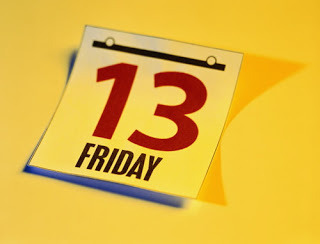
Ooo, let's all welcome Natalie Star to my blog and a wonderful guest post that she's wrote for me! Thank you so much, Natalie! On with the post...
su·per·sti·tion [soo-per-stish-uhn] noun - A belief or notion, not based on reason or knowledge, in or of the ominous significance of a particular thing, circumstance, occurrence, proceeding, or the like. (Dictionary.com).
Chances are, if you’re not superstitious then you don’t know what today’s date is. If you are, then maybe you are reading this from your “hideout”.
It’s Friday the 13th! How did the number thirteen get such a bad rap? In numerology, the number twelve is considered the number of completeness. We have twelve months in the year, twelve hours on the clock, twelve Gods of Olympus, twelve tribes of Israel, twelve Apostles of Jesus, the 12 successors of Muhammad in Shia Islam, etc., whereas the number thirteen is considered irregular, or not complete. (FYI…The fear of Friday the 13th has been called friggatriskaidekaphobia).
While we’re at it, let’s take a look at some other superstitions:
v Black cats – The folklore surrounding black cats varies greatly between cultures. Most consider a run-in with them bad luck, while others consider it positive. The differences are many; I might just blog on black cats alone one day. It’s all very interesting. (Ailurophobia is the fear of cats).
v Walking under ladders – This superstition comes from early Christian times, anything such as a ladder, forming a triangle with three points, represented the holy trinity (Father, Son, and Holy Spirit). It was disgraceful to walk through a symbol of the holy trinity. Doing so could have branded you a witch, and that was bad luck. Nowadays it’s just plain common sense not to walk under a ladder for safety reasons.
v Breaking a mirror – Interestingly, I came across a dozen superstitions on looking glasses/mirrors. I went with the most popular…Before mirrors, any reflective surface was considered magical with powers of seeing into the future. So after mirrors were created, if you broke one that meant you future was shattered. The modern day twist – you will have seven years bad luck.
v Don’t Split the Pole – If two people are walking together and come to a pole, if one goes one way around the pole and the other goes the other way around the pole, it will bring bad luck. Both should go the same way around the pole together to avoid the bad luck. I couldn’t find the origin on this one, but it’s alive and well. My teen daughter yelled at me for splitting the pole a few weeks ago!
v Spilled Salt – Soldiers in Rome were often paid in salt. To spill salt was a waste, and the superstition that claimed bad luck would visit anyone who spilt salt came about to deter this behavior. In today’s society, it’s believed if you spill salt you should scoop up as much as you can, and throw it over your left shoulder to avoid bad luck by “throwing it in the devils face”.
What’s your take on superstitions? Are you a believer? Is there one I missed that you think should be on this list? Weigh in on the subject in the comments section below!
Thank you, Joseph for allowing me to ramble on your blog today! XOXO. This was a fun subject which I didn’t even scratch the surface of. There are many variations in different cultures, countries, and religions. Now I am intrigued and see many hours of research in my future, and who knows I may incorporate some of them into my novels.
Happy Friday the 13th, and have a great day!
~ Natalie Star
http://www.authornataliestar.com - My website.
http://authornataliestar.blogspot.com - stop by for the Autism Awareness Blog Hop happening right now! – with lots of fun giveaways! http://www.facebook.com/iamjustnatalie
-Joseph
And if you want to write a guest post for me just email me at josepheastwood@ymail.com and we can sort something out, I always love it when you guys write posts for me... also, I'm getting over 300 hits a day to my blog, so get in touch! ;D
I hope you have you a great Friday too!
Comment. Follow. Share.




Published on April 13, 2012 07:00
April 12, 2012
MFT - Poetry
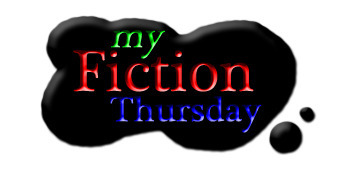
Last week I asked what people would prefer to read, either poetry or an excerpt from The Salem Gates, and most of you said 'The Salem Gates', and so last weeks My Fiction Thursday (MFT) was that, and now, this week, it's going to be some pieces of poetry.
Damaged Goods
Forever touched by your whiplash,
Your outbreak of ill,
Just little lyrical stabs,
But never to kill,
Your trademark to hand,
The ‘X’ marks the spot,
And you push it deeper,
Somewhere for it to rot.
Made my insides empty,
After tearing them out,
To fill me with pretend,
In case you had any doubt.
Covering your bases;
You were never here,
Paste me over with tape,
You know, the one that’s clear,
See the cracks in the foundation,
Are not on my skin,
They’re potholed inside,
My little box of tin.
Velvet Adhesive
Let your soft raspy voice
Wrap its chord around my neck,
Eating into my skin,
As I wriggle into a wreck.
You’re warm at the touch,
But that’s just a front,
You don’t invite us in,
You’d rather it be a hunt,
A search for something special,
To make your palms sweat,
To choke on your breathes,
And then you say, “I’m in your debt.”
I don’t know why,
I just stand, and I stare,
Your lips make a thin smile,
And you cough, “I still care.”
I grin and punch your arm;
How playful we became,
“I’m really sorry,” you choke,
But it’s still the same.
You now bear my stains,
You’ve washed in my scent;
Bathed in my heart,
And left a huge dent.
What do you think?
These poems were quite personal when I wrote them, but now they don't mean much, although I remember writing them and the reasons for writing them... maybe you'll understand if you've ever felt like that... but I hope you haven't, it's a horrible feeling.
-Joseph
Comment. Follow. Share.




Published on April 12, 2012 07:00
April 11, 2012
Action Tags! --- Do What?
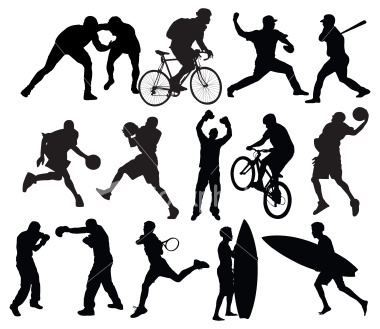
From Sunday's post, Dialogue Tags! --- Say What, I was inspired to do a follow up post about action tags. Partially because I'd forgot to mention them in that post, and then a little bit because I realised that they bring on a whole importance of their own.
I'd love to give a lot of credit for this post to Donya Lynne, she said some really great stuff... even adding to the post:
"The only necessary dialogue tag is "said." The question mark implies the "asked," (so putting "he asked" is redundant) and when someone replies to a piece of dialogue, the "replied" is also implied, and, thus, redundant." - Donya's comment.
That made so much sense, and so I thought I needed to share it with you!
On with the post... so action tags are useful, and if you're not using them, then you ought to be!
Action tags might give detail to how a piece of dialogue is supposed to be said, so instead of using those HORRIBLE replacement words for "said" you might want to try using some action tags. Something else Donya said, because she actually inspired me so much!
"If I used any other word besides "said" as a dialogue tag, it means I am too lazy to turn that poser of a dialogue tag into a more descriptive action tag." - Donya's comment.
It's so true, and it makes me want to be a better writer! I'm going to try and cut ALL dialogue tags other than "said" from my writing... and hey, I'm learning as I go, just like everyone else! I hope this helps!
Example:
"Please can I have the last piece?" she said.
"No, I'm saving it, besides you've already ate two pieces already." Leah rolled her eyes.
"Why not? And who the hell are you saving it for?" Nancy frowned and then puffed her cheeks.
"Someone." Leah winked.
I only used one dialogue tag here, and that was in the first line. Then for the next three sentences I use action tags, each showing some of the emotion in the character. So action tags are useful, so so useful, and not just for characterisation, but also because it makes everything a lot tidier (well, in my opinion it does).
But if you're wanting to just let the dialogue go fast and flow, use "said" because it's invisible, but if it's just a dialogue between two people and it's been established who's speaking then you could go without any tags at all.
Was this post helpful?
Are you going to cut ALL other words for "said"?
-Joseph
Comment. Follow. Share.




Published on April 11, 2012 07:13
April 10, 2012
Words are Beautiful ♥
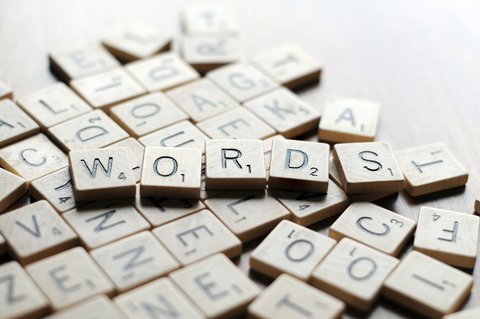
I was talking to a friend, Sinead, she's from Canada, and so she uses the UK spelling of words, just like me.
It got me thinking about all of the words that have been Americanised... also, Sinead directed me to this place here: Spelling Differences, and it listed them all... whooo! But, I'm going to copy and paste that list anyway.
Canada/UK - United States
abridgement - abridgment
acknowledgement - acknowledgment
amoeba - ameba
analyse - analyze
anaesthesia - anesthesia
arbour - arbor
axe - ax
barrelled - barreled
behaviour - behavior
belabour - belabor
brunette - brunet
calibre - caliber
catalogue - catalog
cancelled - canceled
candour - candor
centre - center
centimetre - centimeter
cheque - check
colour - color
clamour - clamor
crystalline - crystaline
crueller - cruelest
crystallize - crystalize
defence - defense
dialogue - dialog
aeon - eon
favour - favor
favourite - favorite
fervour - fervor
fibre - fiber
flavour - flavor
fuelled - fueled
fulfil - fulfill
funnelled - funneled
gauge - gage
goitre - goiter
grey - gray
gruelling - grueling
harbour - harbor
honour - honor
humour - humor
jeweller - jeweler
instalment - installment
imperilled - imperiled
kilometre - kilometer
labour - labor
labelled - labeled
labour - labor
levelled - leveled
licence - license
litre - liter
louvre - louver
lustre - luster
macabre - macaber
manoeuvre - maneuver
marvellous - marvelous
matte - matt
medallist - medalist
meagre - meager
metre - meter
millimetre - millimeter
mitre - miter
modelled - modeled
mould - mold
moult - molt
moustache - mustache
neighbour - neighbor
paean - pean
paleolothic - palaeolothic
panelled/panelling - paneled/paneling
parlour - parlor
practice (n) practise(v) - practice (n/v)
pummelled - pummeled
pyjamas - pajamas
odour - odor
rancour - rancor
raquet - racket
reconnoitre - reconnoiter
saleable - salable
savour - savor
sceptre - scepter
smoulder - smolder
sombre - somber
sulphate - sulfate
sulphur - sulfur
tonne - ton
totalled - totaled
tranquillize - tranquilize
tumour - tumor
traveller - traveler
tunnelled - tunneled
theatre - theater
vice - vise
valour - valor
vapour - vapor
vigour - vigor
wilful - willful
worshipped - worshiped
queueing - queuing
So that's the list... and honestly, which side do you like better? I personally prefer the UK side, but I a from the UK, I just love how the words are written, I love the fact that we have that added "u" in some of our words, or the fact that it ends "re" instead of "er" --- well, there are quite a few changes in this list, all of which you'll be able to notice.
I just think that the UK/Canadian words look more beautiful... they have a strong yet poetic feel to them... which does sound weird, but... then I found this quote, and I was like, HEY, this is me... I am in love with language.
"A poet is, before anything else, a person who is passionately in love with language." - W. H. Auden
Which side do you prefer to write in?
And why?
-Joseph
Comment. Follow. Share.




Published on April 10, 2012 07:21
April 9, 2012
Poetry: Images

A key element in poetry is creating an image that will live on in the mind of your readers.
Something you should know about imagery, it doesn't have to be a picture, it could evoke any of the 5 senses, and it can be as personal as you like, in fact, the more personal it is, the more powerful it is and the more that it will live on.
TIP: Don't be general... be specific!
This is poetry, you've got to give into the strong details, the things that stick out in your mind... you can't keep anything back, if you do, it's just the same as bottling your feelings up, because you'll explode eventually.
Or look at it another way, an image should do something magical, it should come alive in the readers mind. So let them taste the last bottle of wine, or smell the thick smoke from his cigar, give them the thrill of being tickled from the navel up to their abdomen, let them hear his whispers and feel the warmth of his breath against their ears...
Magic.
After the whole lust fest up there I think we should kill something...
So, other ways of making magic happen, is projecting a mental image into your readers mind, and like I said in my above tip, images work best when they're specific.
The cat was dead,
It was put to bed,
There isn't much there, is there? You don't know how the cat died, or anything about it.
The car reversed, in the spot where she'd slept,
In 3 seconds flat, her small body went splat,
And her little kittens stayed and wept.
That was a lot more visual, the cat went splat... there are stronger visuals here, but it sounds all comedic... and a lot more could have been done with it to make it serious and personal... I'm not sure where I was going with it... but I hope you see what I was getting at - be specific about it.
(p.s. sorry for the cheesy rhymes going on there.)
Note on the image I found of the eye, this had a strong image in itself -- in a previous post We are the Deities of our own Destiny! I mentioned that inside each of us we have a universe, and as soon as I saw this picture I immediately thought of that.
Did I help? I didn't feel helpful, I just seemed to go-on.
Write and leave some really visual/sensory poetry, I'd love to hear them!
-Joseph
Comment. Follow. Share.




Published on April 09, 2012 06:00
April 8, 2012
Dialogue Tags! --- Say What?
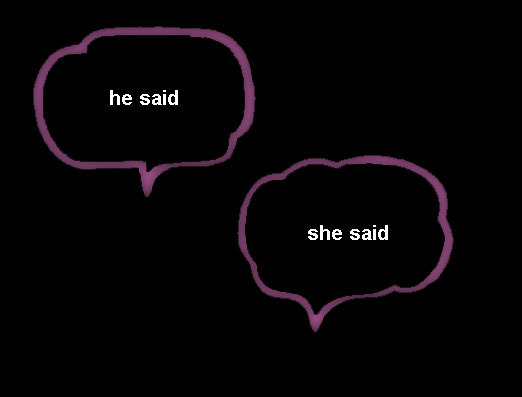
I've been writing this post on and off for the past week. I've tried to finish it but I can't--not that I didn't want to but I've been inspired to add something new every day.
So I figured that something needed addressing and it really bothers me when people go all out on these exuberant descriptions with the dialogue tags. So I'm going to give you my thoughts on them...
He Said, She Said
At High School I was taught to be creative with my dialogue tags, which meant using anything except the word "said" -- although they never said that there was anything wrong with the word, they did however reward people who went above and beyond, and used other words...
Below is a list of words that could replace the word 'said'---the letters in red are at the start of each new alphabet letter.
Accepted, Accused, Acknowledged, Admitted, Advertised, Affirm, Agonized, Agreed, Alleged, Announced, Answered, Appealed, Apply for, Arranged, Articulated, Asked, Asserted, Asseverate, Assumed, Assured, Attract, Aver, Avow, Barked, Bawl, Bawled, Beamed, Beckoned, Begged, Bellowed, Beseeched, Blubbered, Blurted, Bossed, Breathed, Broadcast, Cajole, Called, Carped, Cautioned, Censured, Chimed in, Choked, Chortled, Chuckled, Circulate, Claim, Comforted, Conceded, Concurred, Condemned, Confer, Confessed, Confided, Confirm, Consoled, Contend, Continued, Crave, Cried out, Criticized, Croaked, Crooned, Crowed, Declared, Defend, Demanded, Denote, Dictated, Disclosed, Disposed, Disseminate, Distribute, Divulged, Drawled, Emitted, Empathized, Encourage, Encouraged, Entreated, Exact, Exclaimed, Explained, Exposed, Faltered, Finished, Fumed, Gawped, Get out, Giggled, Given, Glowered, Grieved, Grinned, Groan, Groaned, Growled, Grumbled, Handed on, Held, Hesitated, Hinted, Hissed, Hollered, Howled, Impart, Implied, Implored, Importune, Inclined, Indicate, Informed, Inquired, Insisted, Interjected, Invited, Jabbered, Joked, Justified, Keened, Lamented, Laughed, Leered, Lilted, Maintained, Make known, Make public, Marked, Mewled, Mimicked, Moaned, Mocked, Mourned, Murmured, Mused, Necessitated, Needed, Noted, Observed, Offered, Ordered, Passed on, Pleaded, Postulated, Preached, Premised, Presented, Presupposed, Proclaimed, Prodded, Professed, Proffered, Promised, Promulgated, Proposed, Protested, Provoked, Publicized, Published, Puled, Put forth, Put out, Quaked, Queried, Quipped, Quivered, Quizzed, Raged, Ranted, Reckoned that, Rejoiced, Rejoined, Released, Remarked, Remonstrated, Repeated, Replied, Reprimanded, Requested, Required, Requisition, Retorted, Revealed, Roared, Said, Sang, Scoffed, Scolded, Seethed, Sent on, Settled, Shared, Shed tears, Shouted, Shrieked, Shrugged, Shuddered, Snarled, Snivelled, Sobbed, Solicited, Sought, Specified, Spluttered, Spread, Stammered, Stated, Stuttered, Stressed, Suggested, Supposed, Swore, Taunted, Teased, Testified, Thundered, Ticked off, Told, Told off, Tore a strip off, Touted, Transferred, Transmitted, Trembled, Trumpeted, Understood, Undertook, Upbraided, Uttered, Verified, Vociferated, Voiced, Vouched for, Vouchsafe, Wailed, Wanted, Warned, Weep, Went on. Wept, Wheedle, Whimpered, Whined, Whispered, Yawped, Yelled, Yelped,Yowled.
Yes, there's a lot... and looking at them all makes me feel a little bit sick.
TIP: don't make it your job to try and fit each and everyone one of these into your manuscript... it will make whoever reads it ill... it's not good!
Writing is not about complicating your work... you need to give your readers some credit... they don't want everything there. Your readers do actually have an imagination of their own and every reader will picture something differently... including speech and how words are said.
When words are supposed to be stressed italics are used, and that's generally the rule. There's also exclamation points and question marks, they can also be used to show the tone and/or mood of the sentence etc.
TIP: dialogue should speak for itself.
The 3 main words are "said" "asked" and "replied" -- these are the words that go unnoticed by the readers, they're invisible. Although the odd bit of variety is okay, as long as it aides the dialogue in some form or another. You have to write and cut everything that isn't supposed to be there.
Has any of this been useful?
-Joseph
(Disclaimer: Joe is prone to being slightly dramatic.)
Comment. Follow. Share.




Published on April 08, 2012 04:28
April 7, 2012
My Writing Environment

In the past I've said that I write listening to music... and I can write to music, but I write better without it. Music is a distraction to me, and it seems that I'm only just finding this out about myself.
I feel like I've already wrote a post like this... well, about where I write etc. but so much has changed since then and now, I feel like I don't write well in the before mentioned environment. Which, if like me, you don't want to go through the 200 previous posts to find it, just take this as the first post of its kind.
So, I don't have a desk or anything fancy like that picture... although, it is my dream to have a writing office, and if you've ever seen one of Amanda Hocking's Youtube videos from her office... THAT's the kind of one I want... full of fun and inspiring little objects everywhere.
I just write up at the table in the kitchen... very close to the kettle... also, very close to the washer and dryer, so there is a lot of noise, and as you can picture, the kitchen isn't very big.
If you follow me on Twitter or "like" my Facebook page, then you'll know how much of a coffee addict I am, so as you can imagine, my writing environment smells like coffee... which I have to be very careful not to spill over all the papers that are spread out.
I find that I write better when my workspace isn't cluttered, so I wouldn't advice having paper's spread out everywhere and having to watch your coffee so you don't knock it. However, I think I've grown accustomed to my writing environment and I've made it work....
So, now your turn, in the comments below, answer these:
What's your writing environment like?
Do you have an office?
Do you have food or drink with you?
-Joseph
Comment. Follow. Share.




Published on April 07, 2012 09:00









